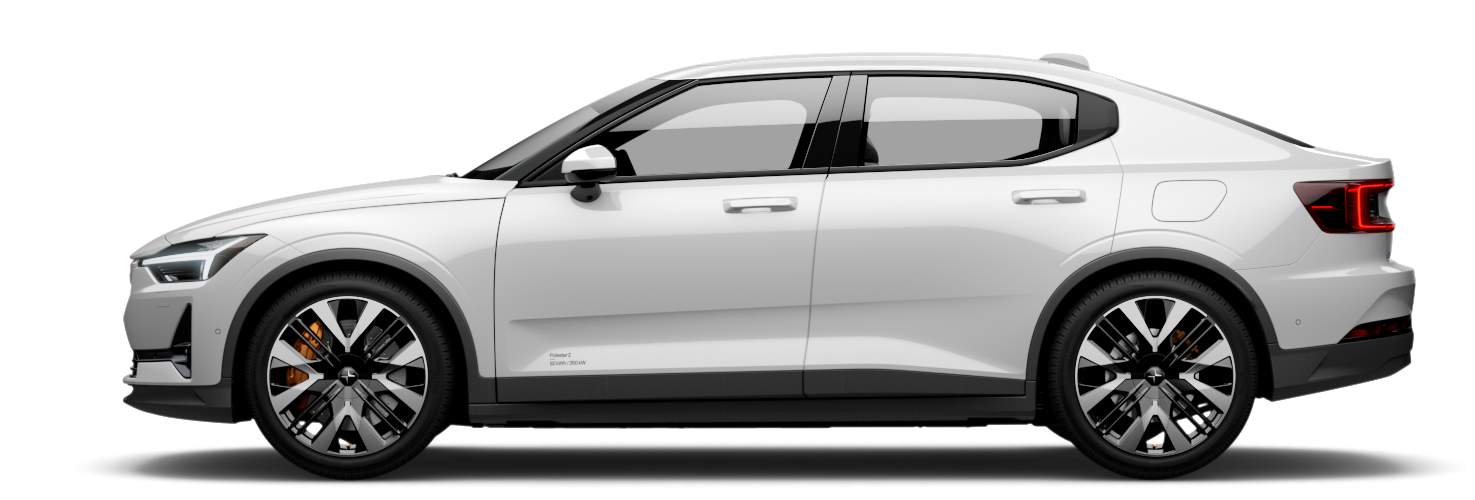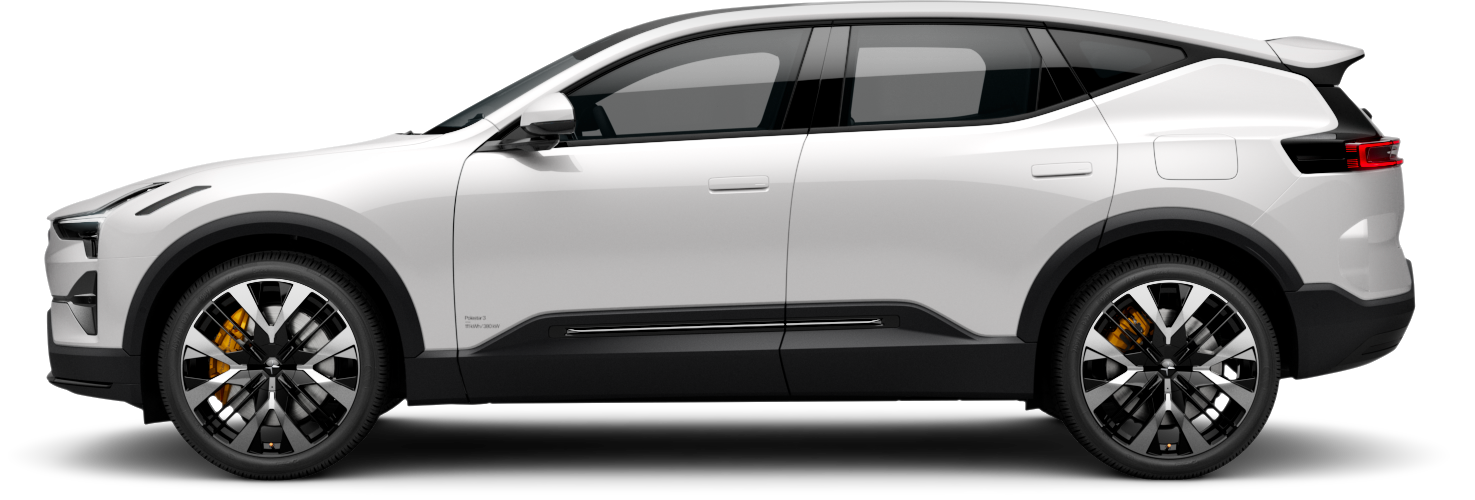Polestar 2 Sustainability credentials
This is a high-level presentation of Polestar 2’s sustainability credentials. It aims to provide transparent information to enable informed, ethical choices.
This is a high-level presentation of Polestar 2’s sustainability credentials. It aims to provide transparent information to enable informed, ethical choices.
Cradle-to-gate refers to the environmental impact assessment of a car’s life cycle from the first raw material extraction to it leaving the factory. Since Polestar 2 was launched, we’ve reduced its cradle-to-gate carbon footprint by three tonnes¹.
Cradle-to-gate refers to the environmental impact assessment of a car’s life cycle from the first raw material extraction to it leaving the factory. Since Polestar 2 was launched, we’ve reduced its cradle-to-gate carbon footprint by three tonnes¹.
From aluminium and steel to plastics, each material category contributes to Polestar 2’s overall carbon footprint, as does the electricity mix used in material production and refining. We aim to continuously reduce the carbon impact and further improve the accuracy of our footprint calculations.
Several factors contribute to the battery’s carbon footprint, from the energy used for cell production to the aluminium used in the battery casing. We push our suppliers to reduce the carbon footprint of the battery modules they supply.
Polestar 2 is produced in Volvo Cars’ plant in Taihzou, a manufacturing facility powered by 100% solar energy. Using entirely renewable electricity reduces the carbon footprint by 0.5 t CO₂e per car.
Cradle-to-gate CO₂ᵉ emissions
Standard range Single motor
Material production
15.4 t
Battery modules
5 t
Manufacturing and logistics
1.6 t
Total
22 t
Long range Single motor
Material production
14.9 t
Battery modules
5.9 t
Manufacturing and logistics
1.6 t
Total
22.4 t
Long range Dual motor
Material production
15.7 t
Battery modules
5.9 t
Manufacturing and logistics
1.6 t
Total
23.1 t
Carbon footprint proportions
Battery modules
25%
Aluminium
28%
Steel and iron
20%
Polymers
9%
Electronics
11%
Other materials
8%
Thanks to improved cell chemistry, CO2e emissions for Polestar 2 Long range Single motor and Long range Dual motor in most markets¹ have been reduced by 1.1 tonnes, down from 7 to 5.9 tonnes per car.
Cradle-to-grave evaluations consider the full span of a car’s existence. Our Life Cycle Assessment quantifies the environmental effect of every stage of a Polestar’s manufacture and use. From the first drive, to everyday charging, to its final recycling.
Cradle-to-grave evaluations consider the full span of a car’s existence. Our Life Cycle Assessment quantifies the environmental effect of every stage of a Polestar’s manufacture and use. From the first drive, to everyday charging, to its final recycling.
After a Polestar 2 leaves the factory, its owner can make a significant difference to its overall carbon footprint by charging with renewable energy wherever possible.
Polestar 2 is 85% recyclable, and a majority of components can be reused or remanufactured. Increasing components’ lifespans in this way can reduce both waste and the CO2 emissions produced by making all-new components.
More on our key drivers
Circularity
We continuously aim to make cars that last longer, with more recycled materials, as we move closer to a goal of full circularity.
Read moreClimate neutrality
The steps we’re taking to meet our defining goal of becoming a fully climate-neutral car manufacturer.
Read moreInclusion
Within Polestar, equal opportunities and a culture of open communication. Within our supply chain, human rights above all.
Read more



